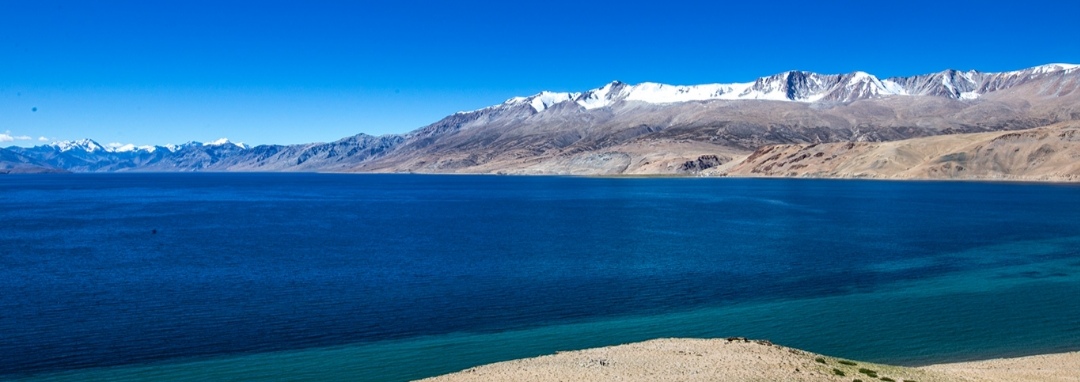Kathmandu, January 29, 2025 - The Himalayas, often referred to as the "Water Tower of Asia," play a crucial role in supporting livelihoods, ecosystems, and economies across South Asia and beyond. This region encompasses some of the most ecologically sensitive and biologically diverse areas in the world, with transboundary rivers flowing through China, Nepal, and India. These rivers not only provide water for drinking, agriculture, and industry but also enhance resilience to natural disasters and improve the livelihoods of millions.
Prominent transboundary rivers include the Mechi River, which flows through Nepal and India; the Indus, Sutlej, and Brahmaputra Rivers, shared by India and China; and the Koshi River, which traverses China, Nepal, and India. These river systems serve as lifelines for the region, but they also face growing challenges that threaten their sustainability and the prosperity of those who depend on them.
Challenges
The management of transboundary water resources in this region is fraught with challenges:
1. Increasing Water Demand: Rapid population growth, urbanization, and agricultural expansion have led to soaring demand for water.
2. Poor Management: Inadequate policies, lack of regional coordination, and fragmented governance hinder effective resource management.
3. Climate Change Impacts: Rising temperatures, unpredictable precipitation patterns, and glacial melt are significantly altering river flows and threatening long-term sustainability.
4. Tensions Among Nations: Conflicting national interests and a lack of effective cooperation often result in disputes, further complicating water resource management.
The Power of Cooperation
Transboundary cooperation offers immense potential for addressing these challenges and unlocking sustainable development opportunities. Cooperation can take many forms, from basic communication and data sharing to joint projects and policy alignment. The benefits of collaboration extend across economic, environmental, social, and political domains.
1. Upstream-Downstream Linkage
Upstream and downstream regions in transboundary river basins are deeply interconnected. By working together, countries can maximize the benefits of water resources, particularly in energy production. The Himalayas, with their abundant rain-fed and snow-fed rivers, offer immense potential for hydropower generation. Joint efforts in water sharing and management can also support agriculture, ensuring a consistent and equitable supply of water for irrigation.
2. Environmental Conservation
Collaborative management of transboundary rivers is vital for addressing critical environmental issues. This includes mitigating seasonal water shortages, improving flood management, preserving biodiversity, reducing pollution, and tackling challenges such as fluctuating water levels due to climate change.
3. Strengthening Political Relations
Transboundary water management demands cooperation and mutual understanding between nations. Agreements on shared water resources can promote peace and stability, fostering trust and collaboration across borders.
Impacts of Climate Change in the Himalayas
The Himalayan region is increasingly bearing the brunt of climate change, with wide-ranging impacts on water resources, agriculture, biodiversity, food security, natural hazards, and urban development. Notable consequences include:
Glacial Lake Outburst Floods (GLOFs), flash floods, and rising temperatures.
Declining Groundwater Tables and prolonged droughts leading to water scarcity.
Desertification and the degradation of ecosystems, threatening agricultural productivity.
These changes exacerbate vulnerabilities for millions of people and demand urgent, coordinated action to mitigate risks and adapt to new challenges.
The Way Forward: Cooperation for Sustainability
Cooperation among China, Nepal, and India is essential to tackle these shared challenges and leverage the potential of transboundary rivers. Joint initiatives at the basin level can expand planning horizons, achieve economies of scale, and ensure sustainability. Specific actions could include:
Establishing a regional framework for water resource management and climate adaptation.
Investing in shared infrastructure for hydropower, irrigation, and disaster preparedness.
Enhancing data sharing and early warning systems for floods and droughts.
Promoting community-based conservation efforts to protect biodiversity and ecosystems.
Conclusion
In the face of growing environmental and developmental challenges, transboundary cooperation in the Himalayas is not just an option—it is an imperative. By working together, China, Nepal, and India can transform shared water resources into a source of resilience, prosperity, and peace. As the impacts of climate change intensify, fostering unity across borders is critical to securing a sustainable future for millions who depend on the Himalayas' rivers.
This approach embodies the spirit of regional harmony and global solidarity, paving the way for a more resilient and sustainable countries.